Event Archives
Anglo-European Intelligence Cooperation: Britain in Europe, Europe in Britain
Intelhub Speaker Series: Hager Ben Jaffel
March 6, 2020 at 10am ET
This presentation will discuss research findings drawn from the recently published monograph entitled ‘Anglo-European Intelligence Cooperation: Britain in Europe, Europe in Britain’. The monograph investigates everyday practices of intelligence cooperation between Britain and its continental partners in anti-terrorism matters.
In contrast to political and academic narratives that overstate the divide between Britain and Europe, it is argued that British intelligence has always had a European dimension. Claiming that Britain has a European connection has consisted in shifting away from dominant categories of understanding in Intelligence Studies and cognate disciplines towards a different conception of intelligence cooperation that emphasizes its practical and human underpinnings. Building upon a theoretical framework inspired by International Political Sociology and ethnographic fieldwork in Europe, this presentation will uncover concrete manifestations of Britain’s European connection by looking at the everyday routines and working relationships of representatives from British police forces embedded in a European field structured around the exchange of anti-terror intelligence.
It will also provide an innovative way to account for intelligence cooperation through the analysis of resources at stake in this field (i.e. budget and workforce, inter alia), which determine the trajectory and positioning of police and intelligence services in Europe, thereby contrasting with rationalist perspectives that explain intelligence cooperation in terms of threat perceptions and state decisions.
Finally, the presentation will open up a new interpretation of the recent moves of British security services in the context of ‘Brexit’ negotiations.
This presentation will therefore ground a counter-intuitive analysis that upends many assumptions about the Anglo-European relationship, such as the commonly held view that the Britain has an ambivalent position towards Europe as a result of its ‘special relationship’ with the United States.
Hager Ben Jaffel is a research associate at the National Center for Scientific Research (CNRS) in Paris. Since she received her PhD in International Relations at King’s College London, her research has been structured around two lines of inquiry. The first one aims at furthering the analysis of international activities of domestic security services involved in European intelligence cooperation by extending the sociological analysis of the intelligence professionals to analysts, desk officers and database managers. Her reflections also focus on the development of transdisciplinary and critical approaches to the study of contemporary intelligence in order to build a new research agenda uncovering new lines of inquiry that challenge the canons of Intelligence Studies. In July, she will be co-convening a workshop entitled “Intelligence in contemporary times: Towards a transversal research agenda” as part of the European Workshops in International Studies (EWIS) in Brussels.
Has the Creation of the National Security Council Reduced the Likelihood of Intelligence Failures at the Hands of Executive Consumers in the UK?
Intelhub Speaker Series: Celia G. Parker
December 17, 2019 | View Webinar
The UK’s National Security Council (NSC) was created in 2010 to bring together executive decision makers and experts to discuss and implement the UK’s National Security Strategy. The NSC formalised regular contact between intelligence and policy makers at the highest level of decision making on national security in the UK. It reinforced the British intelligence culture of collegiality and was intended as a home for Grand Strategy. Its creation has decreased the likelihood of some types of intelligence failures at the hands of its executive consumers, for example misunderstanding the nature and limitations of intelligence. Moreover, although not all types of intelligence failure have been mitigated, the opportunity for negative politicisation of intelligence, such as cherry picking, is reduced. However, the NSC is not a statutory institution, and its use by members of the UK’s executive is neither obligatory nor prescribed. Like the arrangements which came before it, the NSC’s effectiveness is subject to the whim of the Prime Minister of the day, as will be, therefore, his or her use of intelligence.
 Celia G. Parker worked as an intelligence analyst at the UK’s Foreign and Commonwealth Office. Since leaving she has been teaching intelligence analysis across the world. She completed her MA in Intelligence and Security at the University of Leicester in 2019, after which she started her MPhil/PhD at King’s College London, looking at leadership of the UK’s Intelligence Community.
Celia G. Parker worked as an intelligence analyst at the UK’s Foreign and Commonwealth Office. Since leaving she has been teaching intelligence analysis across the world. She completed her MA in Intelligence and Security at the University of Leicester in 2019, after which she started her MPhil/PhD at King’s College London, looking at leadership of the UK’s Intelligence Community.
Where in the World is al-Baghdadi? Finding a Terrorist Leader with Open Source Geospatial Intelligence
Intelhub Speaker Series: Stephen Coulthart, Meghann Maloney, and Reagan Turley
October 4, 2019 | View Webinar
Publicly available geospatial information and imagery used to analyze national security threats—what we term open source geospatial intelligence (GEOINT)—holds significant value for finding terrorist leaders. However, there are limited methodologies to leverage open source GEOINT to find the most-difficult-to-track high value targets. This paper addresses this gap with a methodology based on geographic profiling techniques to estimate the probable location of the world’s most wanted terrorist: ISIS leader, Abu Bakr al-Baghdadi. We draw on varied geospatial data, such as satellite imagery, as well as other sources like audio samples and subject matter experts. Our findings suggest ISIS’ leader is on the outskirts of a large Iraqi city in Anbar Province, possibly Ramadi, in a small one or two story residential dwelling close to or connected to a mosque. Our analysis also suggests he is staying in one location. While Baghdadi’s location is not yet known to the world, the findings of this paper have important implications for scholars and counterterrorism analysts. For terrorism studies scholars, this study portends how the ever decreasing cost of open source GEOINT can make counterterrorism decapitation strategies more attractive. For analysts, our methodology provides a foundation for locating hard-to-find targets, such as cartel members, kidnappers, or even epidemiology searches for “patient zero.”
 Stephen Coulthart (Ph.D. University of Pittsburgh) is an assistant professor of security studies. Dr. Coulthart’s research focuses on intelligence analysis, intelligence education as well as national security and border security technology policy. His research has been published in Intelligence and National Security, International Affairs, and the Journal of Conflict Resolution, among others. He is the lead editor of Researching National Security Intelligence: Multidisciplinary Approaches (Georgetown University Press, fall 2019). Dr. Coulthart has contributed commentary to outlets such as “Defense One” and the Washington Post’s “Monkey Cage” and “Grade Point.” In 2018 Dr. Coulthart was selected by the Office of the Director of National Intelligence to serve with other experts to analyze emerging national security technologies. He is also a fellow with the Truman National Security Project.
Stephen Coulthart (Ph.D. University of Pittsburgh) is an assistant professor of security studies. Dr. Coulthart’s research focuses on intelligence analysis, intelligence education as well as national security and border security technology policy. His research has been published in Intelligence and National Security, International Affairs, and the Journal of Conflict Resolution, among others. He is the lead editor of Researching National Security Intelligence: Multidisciplinary Approaches (Georgetown University Press, fall 2019). Dr. Coulthart has contributed commentary to outlets such as “Defense One” and the Washington Post’s “Monkey Cage” and “Grade Point.” In 2018 Dr. Coulthart was selected by the Office of the Director of National Intelligence to serve with other experts to analyze emerging national security technologies. He is also a fellow with the Truman National Security Project.
Meghann Maloney is a Master's student in the Intelligence and National Security Studies Program at the University of Texas at El Paso. She is also working on getting graduate certificates in Open Source Intelligence and Geographical Information Science and Technology. Currently, Meghann is studying the effect and implications 3rd generation gangs have on security at different spatial levels. When not at school, she works as a figure skating coach and takes care of her 6-year-old son.
Reagan Turley is a Ph.D. candidate in the Chemistry and Biochemistry Department at the University of Texas at El Paso. He is currently studying how nanoparticles can be used in water treatment processes and developing analytical methods to detect nanoparticles in water. He also has a strong interest in the application of GIS in mapping chemistry in the environment.
Capitalizing on Competition: Coopetition in a World of State Secrets
Intelhub Speaker Series: Daniela Bacheș-Torres
September 9, 2019 | View Webinar
Given the growing weight of regional cooperation in intelligence as an expression of both low politics and high politics, this presentation will aim to address the national and international drivers of emerging cooperative systems. By looking at three case studies – the European Union Intelligence and Situation Centre (INTCEN), the Gulf Cooperation Council (GCC), and the Association of Southeast Asian Nations (ASEAN) “Our Eyes” Intelligence Initiative –, this research will show that in addition to congruity and affiliation, complementarity and opposition are essential in understanding the emergence, organizational functioning and evolution of multinational cooperation. The intelligence scholarship disregarded the holistic, long-term trade-off between cooperation and competition, failing to conceptualize and explain liaison beyond short-term common interests and threats. Trying to fill this gap, the presentation will build upon the hypothesis that the organizational culture of intelligence liaison is a co-opetitive one, that is, cooperation not excluding or limiting the state of competition between intelligence actors. On the contrary, a competitive context provides the stimuli and drivers for cooperation between actors. Relatedly, it asserts the need of a holistic approach of the environment and multilevel factors that constantly shape intelligence cooperation as a dynamic process.
 Daniela Bacheș-Torres is an Instructor with the American Public University (APUS) and a doctoral candidate at Brunel University, UK, her research focusing on intelligence cooperation in the European Union. She is also working in the private sector as a Senior Security Analyst. Previously, Daniela worked as an intelligence analyst for Merck & Co., and a researcher with the “Mihai Viteazul” National Intelligence Academy (Romanian Intelligence Service) in Romania. She has experience as a researcher, trainer and assistant manager in various projects funded by the European Union, such as “Setting-up an Air-Marshal Training Center – ARMLET,” “Citizens Interaction Technologies Yield Community policing –CITYCoP,” and “ENLIGHTEN - European Legitimacy in Governing through Hard Times”. Daniela also initiated and leads the Early Career Scholars Group (ECSG), a junior scholars network running under the Intelligence Studies Section at ISA. Currently, she serves as the Managing Editor of the Journal of European and American Intelligence Studies (JEAIS).
Daniela Bacheș-Torres is an Instructor with the American Public University (APUS) and a doctoral candidate at Brunel University, UK, her research focusing on intelligence cooperation in the European Union. She is also working in the private sector as a Senior Security Analyst. Previously, Daniela worked as an intelligence analyst for Merck & Co., and a researcher with the “Mihai Viteazul” National Intelligence Academy (Romanian Intelligence Service) in Romania. She has experience as a researcher, trainer and assistant manager in various projects funded by the European Union, such as “Setting-up an Air-Marshal Training Center – ARMLET,” “Citizens Interaction Technologies Yield Community policing –CITYCoP,” and “ENLIGHTEN - European Legitimacy in Governing through Hard Times”. Daniela also initiated and leads the Early Career Scholars Group (ECSG), a junior scholars network running under the Intelligence Studies Section at ISA. Currently, she serves as the Managing Editor of the Journal of European and American Intelligence Studies (JEAIS).
The Fundamentals - The Four Pillars of Intelligence Operations: Data, Tools, People, Processes
Intelhub Speaker Series: Erik Kleinsmith
August 7, 2019 | View Webinar
This session explores several considerations in planning, creating, and conducting an intelligence operation pertaining to each of the four pillars. Within each area challenges, pitfalls, and potential solutions that are applicable to any type of intelligence organization, operation, or center will be examined and discussed.
Key Take-Aways:
- An understanding of the various considerations that must be addressed in planning for the creation or improvement of their own intelligence organization or operation
- Methods to evaluate current or planned operations to improve overall support for the customers of intelligence
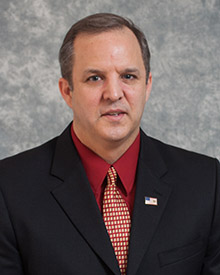 Mr. Kleinsmith is the Associate Vice President for Strategic Relations in Intelligence, National, Homeland and Cyber Security for American Military University (AMU). He has extensive experience in the intelligence and security related training and analysis along with experience in counterintelligence, information operations, and asymmetric threats and tactical military operations. Spending over a decade as an Armor and Military Intelligence Officer in the US Army, Mr. Kleinsmith has been at the front of the intelligence community, in both the conduct of intelligence operations as well as in the future development of intelligence operations and analysis. Culminating his military career as the Chief of Intelligence for the US Army’s Land Information Warfare Activity, Mr. Kleinsmith pioneered the development of asymmetric threat analysis using the cutting edge data mining technology of the Intelligence and Security Command’s (INSCOM) Information Dominance Center (IDC). In this capacity, Mr. Kleinsmith gained US national notoriety related to his involvement in the Able Danger program as the military lead of a team of analysts profiling and mapping Al Qaeda prior to 9/11. Erik has authored several intelligence and security related articles for www.inpublicsafety.com, His book latest book, Intelligence Operations: Data, Tools, People, and Processes, will be released in January 2020. Erik is also part of a private investigative group who have identified the identity of the notorious DB Cooper, one of the only unsolved terrorism cases in US history. He has also testified before the US Senate Judiciary Committee and the US Armed Services Committee, and has appeared on several news shows.
Mr. Kleinsmith is the Associate Vice President for Strategic Relations in Intelligence, National, Homeland and Cyber Security for American Military University (AMU). He has extensive experience in the intelligence and security related training and analysis along with experience in counterintelligence, information operations, and asymmetric threats and tactical military operations. Spending over a decade as an Armor and Military Intelligence Officer in the US Army, Mr. Kleinsmith has been at the front of the intelligence community, in both the conduct of intelligence operations as well as in the future development of intelligence operations and analysis. Culminating his military career as the Chief of Intelligence for the US Army’s Land Information Warfare Activity, Mr. Kleinsmith pioneered the development of asymmetric threat analysis using the cutting edge data mining technology of the Intelligence and Security Command’s (INSCOM) Information Dominance Center (IDC). In this capacity, Mr. Kleinsmith gained US national notoriety related to his involvement in the Able Danger program as the military lead of a team of analysts profiling and mapping Al Qaeda prior to 9/11. Erik has authored several intelligence and security related articles for www.inpublicsafety.com, His book latest book, Intelligence Operations: Data, Tools, People, and Processes, will be released in January 2020. Erik is also part of a private investigative group who have identified the identity of the notorious DB Cooper, one of the only unsolved terrorism cases in US history. He has also testified before the US Senate Judiciary Committee and the US Armed Services Committee, and has appeared on several news shows.
Insurgent use of Intelligence
Intelhub Speaker Series: Dr. David Strachan-Morris
July 3, 2019 | View Webinar
The last two decades have seen arguably the most extended period of Counterinsurgency Warfare in recent warfare and with this has come intensive professional and academic study of how to conduct counterinsurgency. While this has included work on how to conduct intelligence in a counterinsurgency campaign, the insurgents themselves are treated almost exclusively as targets to be acted upon rather than intelligence actors in their own right. A forthcoming series of articles in Intelligence and National Security will address this shortcoming, covering a diverse range of campaigns in order to shed light on this aspect of intelligence. In this webinar Dr. David Strachan-Morris will discuss his contribution to the series, which draws on the Second Indochina War as a case study, particularly the period from the start of the American participation until the fall of Saigon in 1975, to examine the use of intelligence in support of the guerrilla campaign in South Vietnam. He will talk about some of the unique aspects of the insurgent use of intelligence in the context of the hybrid campaign in Vietnam, making comparisons with modern day insurgencies, and highlight some of the wider lessons on politicisation, intelligence failure, and the interaction between tactical and strategic intelligence. This webinar will be of interest to anyone looking at the use of intelligence by insurgents in particular or non-state actors in general.
 Dr. David Strachan-Morris is a Lecturer in Intelligence and Security at the University of Leicester, where he runs the MA Intelligence and Security programme as well as being Director of Distance Learning for the School of History, Politics and International Relations. Before embarking on an academic career he served in the Intelligence Corps in the British Army and worked in intelligence management roles in the private security industry, mostly in Iraq. His current research projects focus on intelligence education, non-state actor intelligence, and strategic intelligence.
Dr. David Strachan-Morris is a Lecturer in Intelligence and Security at the University of Leicester, where he runs the MA Intelligence and Security programme as well as being Director of Distance Learning for the School of History, Politics and International Relations. Before embarking on an academic career he served in the Intelligence Corps in the British Army and worked in intelligence management roles in the private security industry, mostly in Iraq. His current research projects focus on intelligence education, non-state actor intelligence, and strategic intelligence.
From CIA to Facebook: The Rise of Intelligence in the Private Sector
Intelhub Speaker Series: Efren R. Torres-Baches
May 23, 2019 | View Webinar
Intelligence has long been thought as an exclusive function of government. The CIA, NSA and FBI have become synonyms for the intelligence tradecraft. However, there is another side of intelligence that has been neglected, that is, intelligence in the private sector. Many times, the intelligence tradecraft, when acting in corporations, has been confused with Competitive Intelligence or Business Intelligence, both designed to generate revenue for a company. Notwithstanding, protective intelligence in the corporate world is a close cousin of intelligence practiced in open-source intelligence (OSINT) units in government.
Private Sector Intelligence Units (PSIUs) are not a new phenomenon. They have existed since the 1980s when the oil and gas industry realized it operated in high-risk areas and could not depend solely on the US government. Now, since 9/11, other enterprises realized they had the same needs as the oil and gas industry, thus, the PSIUs have spread like wildfire in the last decade. Although operating strictly with open sources and with a few privileged secret sources, PSIUs investigate, research and report on terrorism, crime, harassment and any threats to a company’s interests domestically or abroad. This presentation is designed to provide the audience with an alternative view of the tradecraft as it is evolving in a more volatile world.
 Efren R. Torres-Baches is a Senior Intelligence Analyst with experience in security and investigations. Efren currently works in the private sector where he focuses on monitoring and investigating entities to prevent violations of the US Office of Foreign Assets Control (OFAC) imposed sanctions and to detect potential instances of money laundering and/or terrorist financing. He is also the Manager of the OSINT & Intelligence Analysis Training Course offered in collaboration with RIEAS. Prior to his current roles, he worked as a Regional Intelligence Analyst focusing on drug trafficking organizations and anarchist groups in Latin America. Efren holds an MA in Intelligence and Security Studies from Brunel University in London, an MSc Econ. in Intelligence, War Studies and Terrorism from the University of Wales, Aberystwyth, and a BA in Cognitive Psychology from the University of California, Irvine. Efren also attended the University of Cambridge where he studied intelligence. He has authored articles on intelligence in the private sector and intelligence analysis. Efren is also an expert in developing intelligence units and associated practices.
Efren R. Torres-Baches is a Senior Intelligence Analyst with experience in security and investigations. Efren currently works in the private sector where he focuses on monitoring and investigating entities to prevent violations of the US Office of Foreign Assets Control (OFAC) imposed sanctions and to detect potential instances of money laundering and/or terrorist financing. He is also the Manager of the OSINT & Intelligence Analysis Training Course offered in collaboration with RIEAS. Prior to his current roles, he worked as a Regional Intelligence Analyst focusing on drug trafficking organizations and anarchist groups in Latin America. Efren holds an MA in Intelligence and Security Studies from Brunel University in London, an MSc Econ. in Intelligence, War Studies and Terrorism from the University of Wales, Aberystwyth, and a BA in Cognitive Psychology from the University of California, Irvine. Efren also attended the University of Cambridge where he studied intelligence. He has authored articles on intelligence in the private sector and intelligence analysis. Efren is also an expert in developing intelligence units and associated practices.
Disinformation Wars: What Russian Active Measures Reveal About American Passive Society
Intelhub Speaker Series: Matthew Crosston
April 24, 2019 | View Webinar
While there has been passionate talk about what measures were taken by Russian intelligence to interfere with and/or undermine American democracy during the 2016 Presidential election (and beyond), the emphasis has largely been on the technical aspects of the initiatives and the possible consequences on foreign affairs. What has been ignored is the examination of how/why such measures have been so successful and continue to have lives of their own, especially amongst purely American partisan groups, both left and right. This talk reveals how Russian strategy actually revealed important, and disturbing, elements of contemporary American society, the state of domestic politics in the US, and certain failures of the American education system in terms of civic education, citizenship, and learning in general.
 Professor Matthew Crosston is a member of the Doctoral Faculty in the School of Security and Global Studies at the American Military University, where he helped launch the institution's inaugural doctoral programs in Global Security and Strategic Intelligence. He has published top-tier research that has impacted real world decision-making in the US and beyond. He has published over 100 articles, analytical editorials, and commissioned opinion pieces that represent the full spectrum of global security which have been translated into Russian, Arabic, Chinese, Indonesian, Hebrew, Spanish, Turkish, Farsi, Greek, and Uzbek. Currently a Senior Research Fellow at the Institute for National Security Studies in Tel Aviv, Israel, Crosston has also won global fellowships at the Research Institute for European and American Studies in Athens, Greece, the China Eurasia Council for Political and Strategic Research in Nanjing, China, and was the first American invited to conduct political analysis for the Russian International Affairs Council in Moscow, Russia. He has a BA from Colgate University, MA from the University of London, PhD from Brown University, completing a Post-Doc at the University of Toronto. His professional page is on Academia.edu, where he has maintained a Global Top 0.1% ranking for the last 40 consecutive months in over two dozen sub-fields, including International Security, Intelligence Studies, Terrorism and Counterterrorism, Geopolitics, International Relations, Russian Studies, and Cyberwarfare, with more than a quarter of a million views/downloads of his work in over 150 countries and 5000 institutions.
Professor Matthew Crosston is a member of the Doctoral Faculty in the School of Security and Global Studies at the American Military University, where he helped launch the institution's inaugural doctoral programs in Global Security and Strategic Intelligence. He has published top-tier research that has impacted real world decision-making in the US and beyond. He has published over 100 articles, analytical editorials, and commissioned opinion pieces that represent the full spectrum of global security which have been translated into Russian, Arabic, Chinese, Indonesian, Hebrew, Spanish, Turkish, Farsi, Greek, and Uzbek. Currently a Senior Research Fellow at the Institute for National Security Studies in Tel Aviv, Israel, Crosston has also won global fellowships at the Research Institute for European and American Studies in Athens, Greece, the China Eurasia Council for Political and Strategic Research in Nanjing, China, and was the first American invited to conduct political analysis for the Russian International Affairs Council in Moscow, Russia. He has a BA from Colgate University, MA from the University of London, PhD from Brown University, completing a Post-Doc at the University of Toronto. His professional page is on Academia.edu, where he has maintained a Global Top 0.1% ranking for the last 40 consecutive months in over two dozen sub-fields, including International Security, Intelligence Studies, Terrorism and Counterterrorism, Geopolitics, International Relations, Russian Studies, and Cyberwarfare, with more than a quarter of a million views/downloads of his work in over 150 countries and 5000 institutions.
Disrupt and Deny: British Covert Action and Foreign Policy
Intelhub Speaker Series: Dr. Rory Cormac
April 11, 2019 | View Webinar
Covert action is a state’s unacknowledged interference in the affairs of others. Such activity has featured prominently in international security discourse since Russia’s annexation of Crimea in 2014. It is most often associated with Russia and the United States. However, the UK also has a long track record of covert action dating back as far as the reign of Elizabeth I. This session outlines what covert action entails, why the so-called “quiet option” has long appealed to political leaders, and what constitutes success in this inherently controversial instrument of foreign policy. It then examines the UK experience more closely, explaining how historical, bureaucratic, and political factors shape British approaches to – and use of – covert action.
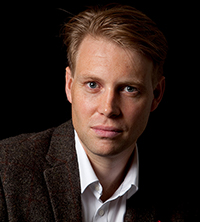 Dr. Rory Cormac is an Associate Professor of International Relations at the University of Nottingham. His research specialises in covert action and secret intelligence. Cormac is a Fellow of the Royal Historical Society and has held AHRC and Leverhulme research fellowships, most recently as a visiting scholar at Johns Hopkins University. Cormac has published widely on intelligence and security issues, and appears regularly on the media. His most recent book is Disrupt and Deny: Spies, Special Forces and the Secret Pursuit of British Foreign Policy (Oxford University Press, 2018).
Dr. Rory Cormac is an Associate Professor of International Relations at the University of Nottingham. His research specialises in covert action and secret intelligence. Cormac is a Fellow of the Royal Historical Society and has held AHRC and Leverhulme research fellowships, most recently as a visiting scholar at Johns Hopkins University. Cormac has published widely on intelligence and security issues, and appears regularly on the media. His most recent book is Disrupt and Deny: Spies, Special Forces and the Secret Pursuit of British Foreign Policy (Oxford University Press, 2018).
Hostage Negotiation: An International Scenario and Intelligence-Based Approach
Intelhub Speaker Series: Dr. Sabrina Magris
February, 20, 2019 | View Webinar
Hostage Negotiation is a multifaceted topic as it combines psychological and behavioral aspects with intelligence analysis and operational intelligence work. For these reasons it is considered top-level operational intelligence. To be successful hostage negotiation requires a strong equilibrium among the team members and, at the same time, a strong skilled chief negotiator. A hostage-taking incident can occur in every country and in different scenarios. However, international attention is now directed on kidnappings that occur abroad in complex environments, and on kidnapping for ransom (KFR) made by terrorists. Key questions that arise include how can real information be gathered? How should the money be followed and how can the flow of funds of terrorist organizations be combatted? How can kidnappings planned and conducted by terrorist groups be distinguished from those conducted by local criminal actors? These are some of the challenges that the international hostage negotiator must cope and deal with. Military staff, civilians and private-company employers are all figures that can be at risk while working abroad or in a foreign country. The complexity of hostage negotiation is made-up of all the different scenarios, people, and organizations the negotiator must know in order to effectively conduct the negotiation. This is one reason hostage negotiation is such a complicated, multifaceted and multidimensional task which must follow basic rules that can be applied to different situations and contexts. With the recent modifications that the terrorism has gone trough recently, hostage kidnapping has become the most important source of money for terrorist groups.
 Dr. Sabrina Magris is the President of École Universitaire Internationale. She is a lecturer in Intelligence, Counterterrorism and Hostage Negotiation at École Universitaire Internationale in Rome. She is NATO-SMEs Subject Matter Expert. She served as supervising instructor for the Certificate of training in United Nations Peace Support Operations provided by US Peace Operations Training Institute. She served as lecturer on Communication and Terrorism for the Italian National broadcasting service (RAI) – Safety and Security division. She is a pioneer in intelligence-based training for the local police in Italy. In 2015 a project conceived by Dr. Magris has been put into practice for security management during the Jubilee announced by Pope Francis. She is a recipient of research awards in international congresses and symposia. During the 2018 IAPTC Congress, with her team Dr. Magris ideated and presented a new training method defined “The New Methodology to Enlarge the Perspective of Scenarios” conceived for army, police forces, and civilians.
Dr. Sabrina Magris is the President of École Universitaire Internationale. She is a lecturer in Intelligence, Counterterrorism and Hostage Negotiation at École Universitaire Internationale in Rome. She is NATO-SMEs Subject Matter Expert. She served as supervising instructor for the Certificate of training in United Nations Peace Support Operations provided by US Peace Operations Training Institute. She served as lecturer on Communication and Terrorism for the Italian National broadcasting service (RAI) – Safety and Security division. She is a pioneer in intelligence-based training for the local police in Italy. In 2015 a project conceived by Dr. Magris has been put into practice for security management during the Jubilee announced by Pope Francis. She is a recipient of research awards in international congresses and symposia. During the 2018 IAPTC Congress, with her team Dr. Magris ideated and presented a new training method defined “The New Methodology to Enlarge the Perspective of Scenarios” conceived for army, police forces, and civilians.
Grey Spaces: Commercial OSINT Provision
Intelhub Speaker Series: Robert Munks & Terry Pattar
January, 24, 2019 | View Webinar
Commercial companies increasingly have the resources, assets, and personnel to provide intelligence products to a level that only 15 years ago would have been the preserve of nation-states. The exponential pace of the digital revolution means that numerous disruptive technologies are coming onstream in the private sector – often available only at cost – that can be applied to a range of open-source intelligence requirements. Such capabilities will only grow in the next decade, challenging the space formerly inhabited by national intelligence communities but offering a rapid pathway to de facto declassification of previously sensitive material. In this presentation, Robert Munks and Terry Pattar of the defence and security company Jane’s by IHS Markit will review innovations such as the proliferation of high-resolution commercial electro-optical and synthetic aperture radar satellite imagery, sensor-based information systems such as AIS, advanced social media analytics, and web-based platforms for communications monitoring such as software-defined radios, and will aim to situate the new tools within a demanding OSINT landscape in which national intelligence communities and private companies are likely to increasingly inter-operate.
 Robert Munks has twenty years of experience working in both government and private-sector intelligence analysis roles, and is currently Editor of the monthly security periodical Jane’s Intelligence Review. In the government sector, he worked as an analyst for the UK Foreign and Commonwealth Office, and served for four years in Brussels as the UK’s first national secondee to the EU Intelligence Analysis Centre. He has lectured on the Masters in Intelligence Analysis course at King Juan Carlos University, Madrid, and has been widely quoted in international media.
Robert Munks has twenty years of experience working in both government and private-sector intelligence analysis roles, and is currently Editor of the monthly security periodical Jane’s Intelligence Review. In the government sector, he worked as an analyst for the UK Foreign and Commonwealth Office, and served for four years in Brussels as the UK’s first national secondee to the EU Intelligence Analysis Centre. He has lectured on the Masters in Intelligence Analysis course at King Juan Carlos University, Madrid, and has been widely quoted in international media.
Terry Pattar is a Director in Jane’s Intelligence Unit. He manages open-source intelligence and bespoke research projects for national security and government clients, providing threat assessments, horizon scanning, and military capability assessment, as well as OSINT optimisation support and OSINT training programmes. Terry has spent the last sixteen years in various investigative and consulting roles, including six years as an investigative desk officer with the UK Ministry of Defence, eight years delivering bespoke analytical products and training services with Jane's, and a year as a consultant in the Gulf region. He specialises in analysing emerging threats to regional stability and global security, and assisting military and security force capability development, with his focus areas including the art of intelligence analysis, cyber-security, counter-human trafficking, and counter-terrorism.
gt;Intelligence, Biosecurity, and Bioterrorism
Intelhub Speaker Series: Dr. Patrick Walsh
November 29, 2018 | View Webinar
Since 9/11, there has been an explosion in the biological sciences and biotechnology. Biotechnology can make better health, food and pharmaceutical products for the planet, but in some cases this technology also has a dual use function. This means it can also be exploited criminally and by terrorists. This presentation summarises some of the key points that arose from my recent book: Intelligence, Biosecurity and Bioterrorism. The book is written for intelligence analysts, who don’t have a background in the biological sciences, but who want to understand emerging bio-threats and risks and how our intelligence communities can better meet the challenges they pose. Why our ICs have long dealt with bio-threats and risks (think WMD Iraq), their track record has not been good. I will argue in this presentation that all ICs need to do better organizationally to manage potential emerging bio-threats and risks. The presentation suggest some ways improvements can be made
 Dr. Patrick F. Walsh is a former intelligence analyst and now an Associate Professor (Intelligence and Security Studies) at the Australian Graduate School of Policing and Security, Charles Sturt University, Australia. Prof Walsh is also an Honorary Visiting Fellow at the Department of History, Politics and International Relations, University of Leicester. He is a senior researcher, who has published over 30 publications on intelligence reform issues. His first book, Intelligence and Intelligence Analysis (Abingdon, UK: Routledge, 2011), examined a range of intelligence reform issues post 9/11 across Australia, Canada, New Zealand, the United States, and the United Kingdom. He is currently a chief investigator on two major grants examining security intelligence collection post Snowden and another examining emerging cyber threats. His most recent book (the subject of this webinar) Intelligence, Biosecurity and Bioterrorism (Palgrave Macmillan UK) was released in September 2018.
Dr. Patrick F. Walsh is a former intelligence analyst and now an Associate Professor (Intelligence and Security Studies) at the Australian Graduate School of Policing and Security, Charles Sturt University, Australia. Prof Walsh is also an Honorary Visiting Fellow at the Department of History, Politics and International Relations, University of Leicester. He is a senior researcher, who has published over 30 publications on intelligence reform issues. His first book, Intelligence and Intelligence Analysis (Abingdon, UK: Routledge, 2011), examined a range of intelligence reform issues post 9/11 across Australia, Canada, New Zealand, the United States, and the United Kingdom. He is currently a chief investigator on two major grants examining security intelligence collection post Snowden and another examining emerging cyber threats. His most recent book (the subject of this webinar) Intelligence, Biosecurity and Bioterrorism (Palgrave Macmillan UK) was released in September 2018.
Principled Spying: The Ethics of Secret Intelligence
Intelhub Speaker Series: Dr. Mark Phythian
October 22, 2018 | View Webinar
The issue of the relationship between ethics and intelligence is a complex one. The question of how far a state should authorise its agents to go in seeking and using secret intelligence is one of the big unresolved issues of public policy for democracies today. The tension between security and privacy sits at the heart of broader debates concerning the relationship between the citizen and the state. The public needs - and wants - protection from the very serious threats posed by domestic and international terrorism, from serious criminality, to be safe in using cyberspace, and to have active foreign and aid policies to help resolve outstanding international problems. Secret intelligence is widely accepted to be essential to these tasks, and to be a legitimate function of the nation state, yet the historical record is that it also can pose significant ethical risks. This presentation, based on the arguments developed in the book Principled Spying: The Ethics of Secret Intelligence by David Omand & Mark Phythian (Georgetown University Press/Oxford University Press, 2018), analyses the roots of the ethics-intelligence tension and suggests approaches to thinking about the ethics of intelligence.
 Professor of Politics in the School of History, Politics and International Relations at the University of Leicester. He has published widely on intelligence and security issues and is the author or editor of several books, including Intelligence in an Insecure World with Peter Gill (2nd ed. Polity Press, 2012) and Understanding the Intelligence Cycle (Routledge, 2013). He is the co-editor of the journal Intelligence and National Security and a Fellow of the UK Academy of Social Sciences. His book with Sir David Omand, Principled Spying: The Ethics of Secret Intelligence, will be published by Oxford University Press and Georgetown University Press in 2018, when a 3rd edition of Intelligence in an Insecure World will be published by Polity Press.
Professor of Politics in the School of History, Politics and International Relations at the University of Leicester. He has published widely on intelligence and security issues and is the author or editor of several books, including Intelligence in an Insecure World with Peter Gill (2nd ed. Polity Press, 2012) and Understanding the Intelligence Cycle (Routledge, 2013). He is the co-editor of the journal Intelligence and National Security and a Fellow of the UK Academy of Social Sciences. His book with Sir David Omand, Principled Spying: The Ethics of Secret Intelligence, will be published by Oxford University Press and Georgetown University Press in 2018, when a 3rd edition of Intelligence in an Insecure World will be published by Polity Press.
Understanding Threats, Adversaries, and Competitors Through Threat Profiling
IntelHub Speaker Series: Erik Kleinsmith
September 27, 2018 | View Webinar
Analyzing our threats, adversaries and competitors requires the establishment of a common framework of understanding called threat profiling. While threat profiling can assist in prioritizing the collection of threat information and help to organize analysis of the group, it can also help to establish a common framework of understanding about each threat amongst groups of analysts for effective cooperation and collaboration.
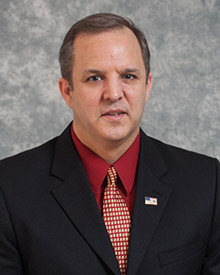 Mr. Kleinsmith is the Associate Vice President for Strategic Relations in Intelligence, National, Homeland and Cyber Security for American Military University (AMU). He has extensive experience in the intelligence and security related training and analysis along with experience in counterintelligence, information operations, and asymmetric threats and tactical military operations. Spending over a decade as an Armor and Military Intelligence Officer in the US Army, Mr. Kleinsmith has been at the front of the intelligence community, in both the conduct of intelligence operations as well as in the future development of intelligence operations and analysis. Culminating his military career as the Chief of Intelligence for the US Army’s Land Information Warfare Activity, Mr. Kleinsmith pioneered the development of asymmetric threat analysis using the cutting edge data mining technology of the Intelligence and Security Command’s (INSCOM) Information Dominance Center (IDC). In this capacity, Mr. Kleinsmith gained US national notoriety related to his involvement in the Able Danger program as the military lead of a team of analysts profiling and mapping Al Qaeda prior to 9/11. In the commercial environment as defense contractor, Mr. Kleinsmith created a series of intelligence training courses and programs for the US Army and other Intel Community members growing his portfolio to over 150 instructors.
Mr. Kleinsmith is the Associate Vice President for Strategic Relations in Intelligence, National, Homeland and Cyber Security for American Military University (AMU). He has extensive experience in the intelligence and security related training and analysis along with experience in counterintelligence, information operations, and asymmetric threats and tactical military operations. Spending over a decade as an Armor and Military Intelligence Officer in the US Army, Mr. Kleinsmith has been at the front of the intelligence community, in both the conduct of intelligence operations as well as in the future development of intelligence operations and analysis. Culminating his military career as the Chief of Intelligence for the US Army’s Land Information Warfare Activity, Mr. Kleinsmith pioneered the development of asymmetric threat analysis using the cutting edge data mining technology of the Intelligence and Security Command’s (INSCOM) Information Dominance Center (IDC). In this capacity, Mr. Kleinsmith gained US national notoriety related to his involvement in the Able Danger program as the military lead of a team of analysts profiling and mapping Al Qaeda prior to 9/11. In the commercial environment as defense contractor, Mr. Kleinsmith created a series of intelligence training courses and programs for the US Army and other Intel Community members growing his portfolio to over 150 instructors.
Throughout his career, Mr. Kleinsmith has made several public presentations and interviews. He has testified before the US Senate Judiciary Committee and the US House Armed Services Committee. He has also appeared on several news shows including Fox News, CNN Radio, NPR, WTOP Federal News Radio and Veterans Radio. He has been a speaker for over a dozen conference and symposiums in the US as well as in several international forums. He has been featured in a December 2005 article in the National Journal entitled “Intelligence Designs” and is one of the main subjects of the 2010 book, “The Watchers: The Rise of America’s Surveillance State” by Shane Harris. Most recently, he has been a member of a private investigative team in the ongoing case of identifying the true identity of the notorious criminal known as DB Cooper. As an executive with AMU, Mr. Kleinsmith is also the author of several intelligence and security related articles for inpublicsafety.com and inhomelandsecurity.com including “Sisters of Battle: Analyzing Female Terrorists” and “Terrorist Brothers: A Common Bond in Extremist Circles”. Erik is the author of the book Intelligence Operations: Data, Tools, People, Processes to be published later this year.
Open Source Intelligence
IntelHub Speaker Series: Arno H.P. Reuser
May 21, 2018 | View Webinar
Arno H.P. Reuser is the founder and owner on Reuser’s Information Services (RIS). He is the principle instructor for Open Source Intelligence (OSINT), cybercrime, information warfare, and investigative internet search strategies at RIS. From 1995 to 2010 he designed, developed, and managed the Open Source Intelligence bureau for the Dutch Defense Intelligence and Security Service. He now trains policy officers, researchers, academia, law enforcement and analysts from both the public and private sector in how to use OSINT, how to search the internet and social media, and digital tool use.
Rethinking Intelligence
IntelHub Speaker Series: Randolph H. Pherson
April 25, 2018 | View Webinar
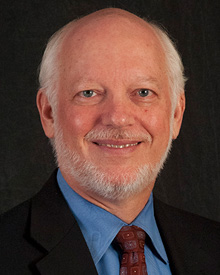 Randolph H. Pherson is CEO, Globalytica, LLC; President, Pherson Associates, LLC; and a Founding Director of the non-profit Forum Foundation for Analytic Excellence. He teaches advanced analytic techniques and critical thinking skills to government and private sector analysts in the United States and abroad. Mr. Pherson has authored or co-authored eleven books, including Structured Analytic Techniques for Intelligence Analysis, 2nd ed. (2015), Critical Thinking for Strategic Intelligence, 2nd ed. (2017); Analyst’s Briefing Guide (2018), Analyst’s Guide to Indicators (2018). He recently edited and published Richards J. Heuer, Jr.’s memoir, Rethinking Intelligence. Mr. Pherson holds the patent on a suite of collaborative analytic tools, TH!NK Suite®. He was a career CIA intelligence analyst and manager, last serving as National Intelligence Officer for Latin America. Mr. Pherson is the recipient of the Distinguished Intelligence Medal for his service as NIO and the Distinguished Career Intelligence Medal. He received his AB from Dartmouth College and MA in International Relations from Yale University.
Randolph H. Pherson is CEO, Globalytica, LLC; President, Pherson Associates, LLC; and a Founding Director of the non-profit Forum Foundation for Analytic Excellence. He teaches advanced analytic techniques and critical thinking skills to government and private sector analysts in the United States and abroad. Mr. Pherson has authored or co-authored eleven books, including Structured Analytic Techniques for Intelligence Analysis, 2nd ed. (2015), Critical Thinking for Strategic Intelligence, 2nd ed. (2017); Analyst’s Briefing Guide (2018), Analyst’s Guide to Indicators (2018). He recently edited and published Richards J. Heuer, Jr.’s memoir, Rethinking Intelligence. Mr. Pherson holds the patent on a suite of collaborative analytic tools, TH!NK Suite®. He was a career CIA intelligence analyst and manager, last serving as National Intelligence Officer for Latin America. Mr. Pherson is the recipient of the Distinguished Intelligence Medal for his service as NIO and the Distinguished Career Intelligence Medal. He received his AB from Dartmouth College and MA in International Relations from Yale University.
Ethical Espionage: Beyond Professional Oversight
IntelHub Speaker Series: Dr. Jan Goldman
March 21, 2018 | View Webinar
It may seem odd or strange to bring up the subject of ethics or morality in a field so apparently immoral as intelligence work, but there are many, important ethical questions to ask. Perhaps at the most basic level, it is appropriate to ask, "Who decides what's necessary for the public good, and is it true that any service is permissible for the public good?" Some people may answer this all depends on policy formulation and implementation, but it's hard to deny that some discretion exists at least in the field. It's also hard to deny that espionage, a core component of intelligence, is perhaps the "dirtiest" component, and perhaps because of the company one has to keep. The basic task of getting somebody to become a traitor to their nation is a questionable if not "dirty" business. After all, what does the virtue of "loyalty" mean in a world so heavily dependent on spies, double agents, traitors, tricks, traps, deception, invasion of privacy, and denial of the right to self-determination. It's almost as if the whole field is based on the most devious and underhanded tactics imaginable. Why then, the importance of ethics? What kind of ethics? The public, policymakers and even those in the intelligence community consider “ethics” a “dirty word” when it is applied to intelligence. However, ethics and intelligence is not an oxymoron, and it should be seen not as a sign of weakness, a flaw or a limitation but rather an attribute that should be embraced.
 Dr. Jan Goldman has over 30 years of experience as both a practitioner and educator in the intelligence community. He is the founding editor of the Security Professional Intelligence Education Series (SPIES) at Rowman and Littlefield Publishing and the founding editor of the International Journal of Intelligence Ethics; and board member of several international journals. His recent publications include Intelligence and Information Policy for National Security: Key Concepts and Terms (2016); The Central Intelligence Agency: An Encyclopedia of Covert Operations, Intelligence Gathering, and Spies (2016); War on Terror Encyclopedia: From the Rise of Al Qaeda to 9/11 and Beyond, (2015). Dr. Goldman is an internationally recognized expert on ethics and intelligence and the organizer of eight international conferences on ethics and intelligence.
Dr. Jan Goldman has over 30 years of experience as both a practitioner and educator in the intelligence community. He is the founding editor of the Security Professional Intelligence Education Series (SPIES) at Rowman and Littlefield Publishing and the founding editor of the International Journal of Intelligence Ethics; and board member of several international journals. His recent publications include Intelligence and Information Policy for National Security: Key Concepts and Terms (2016); The Central Intelligence Agency: An Encyclopedia of Covert Operations, Intelligence Gathering, and Spies (2016); War on Terror Encyclopedia: From the Rise of Al Qaeda to 9/11 and Beyond, (2015). Dr. Goldman is an internationally recognized expert on ethics and intelligence and the organizer of eight international conferences on ethics and intelligence.
Discussion on the Global Security and Intelligence Studies Journal
IntelHub Speaker Series: Dr. Melissa Schnyder and Dr. Matthew Crosston
February 27, 2018 | View Webinar
Dr. Melissa Schnyder and Dr. Matthew Crosston will discuss the Global Security and Intelligence Studies journal -- a peer-reviewed, open access publication published by the Policy Studies Organization on behalf of American Public University System. Topics to be covered include an overview of the journal’s aims and scope, the types of peer reviewed and non-peer reviewed submissions accepted, examples of submissions, and guidelines for contributors.
 Dr. Melissa Schnyder is Associate Professor of International Relations and Global Security in the School of Security and Global Studies at American Public University System. Her research focuses on European Union politics, the politics of immigration and asylum, and the political participation of non-state actors in national and supranational policymaking processes.
Dr. Melissa Schnyder is Associate Professor of International Relations and Global Security in the School of Security and Global Studies at American Public University System. Her research focuses on European Union politics, the politics of immigration and asylum, and the political participation of non-state actors in national and supranational policymaking processes.
 Dr. Matthew Crosston is Senior Faculty for the Doctoral Programs in Global Security and Strategic Intelligence at the American Military University. He has published top-tier research that has impacted real world decision-making in the US and beyond. His established work in cyber has made required reading lists at US CYBERCOM and Israel’s Mossad; the piece ‘Soft Spying’ is required reading at the US Army War College; and ‘Nemesis’ is highlighted on the journal of record for the Russian Ministry of Foreign Affairs. He has published over 100 analytical editorials and commissioned opinion pieces that represent the full spectrum of global security and they have been translated into Russian, Arabic, Chinese, Indonesian, Hebrew, Spanish, Turkish, Farsi, Greek, and Uzbek. He also serves as Vice Chairman at ModernDiplomacy.eu, where his passion for mentoring has resulted in more than 60 young Global South scholars and practitioners becoming published authors. He is currently Senior Research Fellow at the Institute for National Security Studies in Tel Aviv, Israel; Senior Advisor for the Research Institute for European and American Studies in Athens, Greece; Senior Fellow at the China Eurasia Council for Political and Strategic Research in Nanjing, China; and was the first American invited to conduct a political analysis blog for the Russian International Affairs Council in Moscow, Russia. He has a BA from Colgate University, MA from the University of London, PhD from Brown University, completing a Post-Doc at the University of Toronto.
Dr. Matthew Crosston is Senior Faculty for the Doctoral Programs in Global Security and Strategic Intelligence at the American Military University. He has published top-tier research that has impacted real world decision-making in the US and beyond. His established work in cyber has made required reading lists at US CYBERCOM and Israel’s Mossad; the piece ‘Soft Spying’ is required reading at the US Army War College; and ‘Nemesis’ is highlighted on the journal of record for the Russian Ministry of Foreign Affairs. He has published over 100 analytical editorials and commissioned opinion pieces that represent the full spectrum of global security and they have been translated into Russian, Arabic, Chinese, Indonesian, Hebrew, Spanish, Turkish, Farsi, Greek, and Uzbek. He also serves as Vice Chairman at ModernDiplomacy.eu, where his passion for mentoring has resulted in more than 60 young Global South scholars and practitioners becoming published authors. He is currently Senior Research Fellow at the Institute for National Security Studies in Tel Aviv, Israel; Senior Advisor for the Research Institute for European and American Studies in Athens, Greece; Senior Fellow at the China Eurasia Council for Political and Strategic Research in Nanjing, China; and was the first American invited to conduct a political analysis blog for the Russian International Affairs Council in Moscow, Russia. He has a BA from Colgate University, MA from the University of London, PhD from Brown University, completing a Post-Doc at the University of Toronto.
Extremism, Radicalization and Security. An Identity Theory Approach
IntelHub Speaker Series: Julian Richards
December 14, 2017
Discussion around the recently published Extremism, Radicalization and Security. This book provides a detailed application of identity theory to contemporary questions of extremism, radicalization and security. The analysis considers how identity forms a central aspect of notions of extremism and security in Western societies, as articulated both by political leaders, the media and the government. It also takes a close and critical look at counter-extremism policy in contemporary Western society. With its detailed and empirical approach to these questions, this book is an accessible and invaluable resource for academics, practitioners, policy-makers and general readers keen to establish a deeper understanding of the key societal security threats of the day.
Julian Richards is co-director of the Centre for Security and Intelligence Studies (BUCSIS) at the University of Buckingham in the UK. He co-founded BUCSIS in 2008 following a long career in security policy with the British government.
EU Intelligence and the importance of international cooperation in intelligence
IntelHub Speaker Series: José-Miguel Palacios
October 25, 2017 | View Webinar
Our world is increasingly interdependent. The threats tend to be transnational and the answers to them are often multinational. High politics has become an area for cooperation between the main centers of power, war is often coalitional (Kosovo, Afghanistan, Iraq) and peacekeeping operations always are. The intelligence necessary to support all these coalitional activities includes also some elements of multinationality.
The EU is probably the most successful example of regional integration in the world. And in an increasingly unstable world, with frequent crises and new threats affecting the lives of its citizens, the EU acknowledges (EU Global Strategy, 2016) that “none of our countries has the strength nor the resources to address these threats and seize the opportunities of our time alone. But as a Union of almost half a billion citizens, our potential is unparalleled”. Intelligence is one of the instruments the EU can use to protect the lives and interests of Europeans and Europe as a whole.
This webinar addresses the following questions:
- Why national intelligence may be too small to face contemporary challenges
- Some conceptual and terminological clarifications
- EU intelligence clients
- EU intelligence network
- The European intelligence community: a network of variable geometry
- Tentative lessons for the post-modern world
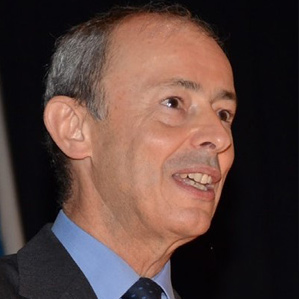 Between 2011 and 2015 José-Miguel Palacios was the Head of the Analysis Division in the EU Intelligence Analysis Centre (EU INTCEN) of the European External Action Service in Brussels. He joined the EU Situation Centre (renamed EU INTCEN in 2012) in 2006 as an analyst, after having worked for the Spanish government since 1986 in several analytical roles. Currently he is a visiting professor at the College of Europe (Bruge, Belgium), a consultant at the Universitat Oberta de Catalunya (Barcelona) and a lecturer at the “Master de Analista de Inteligencia” (UJRC-UC3M, Madrid). José-Miguel Palacios holds a PhD in Political Science, is fluent in Spanish, English, French, Russian and Serbian (Croatian, Bosnian), and is the author of Transición democrática postcomunista: democratización y estatalidad en la Unión Soviética y en Yugoslavia (2003) and a number of works in the fields of intelligence studies, post-Communist studies and military affairs.
Between 2011 and 2015 José-Miguel Palacios was the Head of the Analysis Division in the EU Intelligence Analysis Centre (EU INTCEN) of the European External Action Service in Brussels. He joined the EU Situation Centre (renamed EU INTCEN in 2012) in 2006 as an analyst, after having worked for the Spanish government since 1986 in several analytical roles. Currently he is a visiting professor at the College of Europe (Bruge, Belgium), a consultant at the Universitat Oberta de Catalunya (Barcelona) and a lecturer at the “Master de Analista de Inteligencia” (UJRC-UC3M, Madrid). José-Miguel Palacios holds a PhD in Political Science, is fluent in Spanish, English, French, Russian and Serbian (Croatian, Bosnian), and is the author of Transición democrática postcomunista: democratización y estatalidad en la Unión Soviética y en Yugoslavia (2003) and a number of works in the fields of intelligence studies, post-Communist studies and military affairs.
